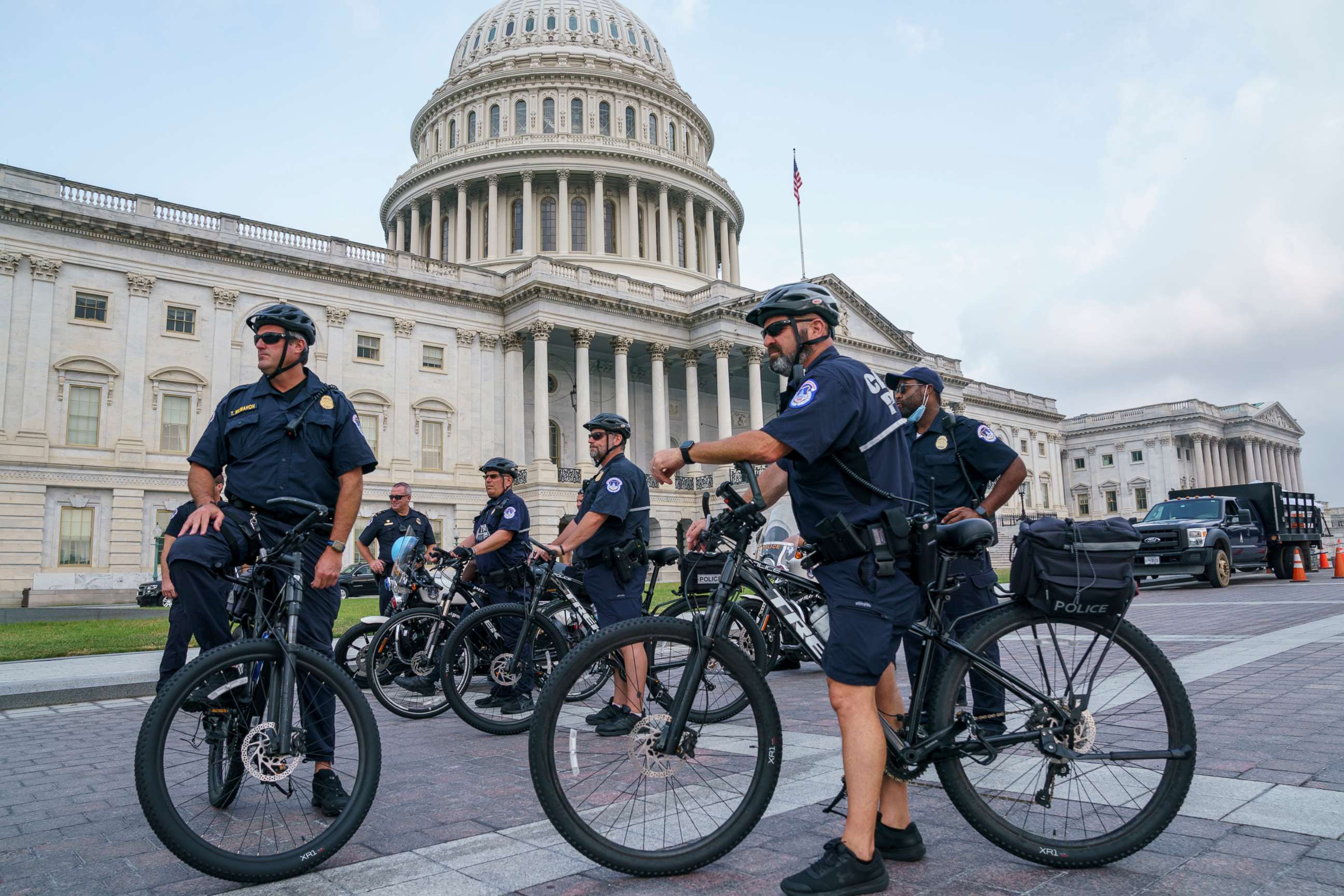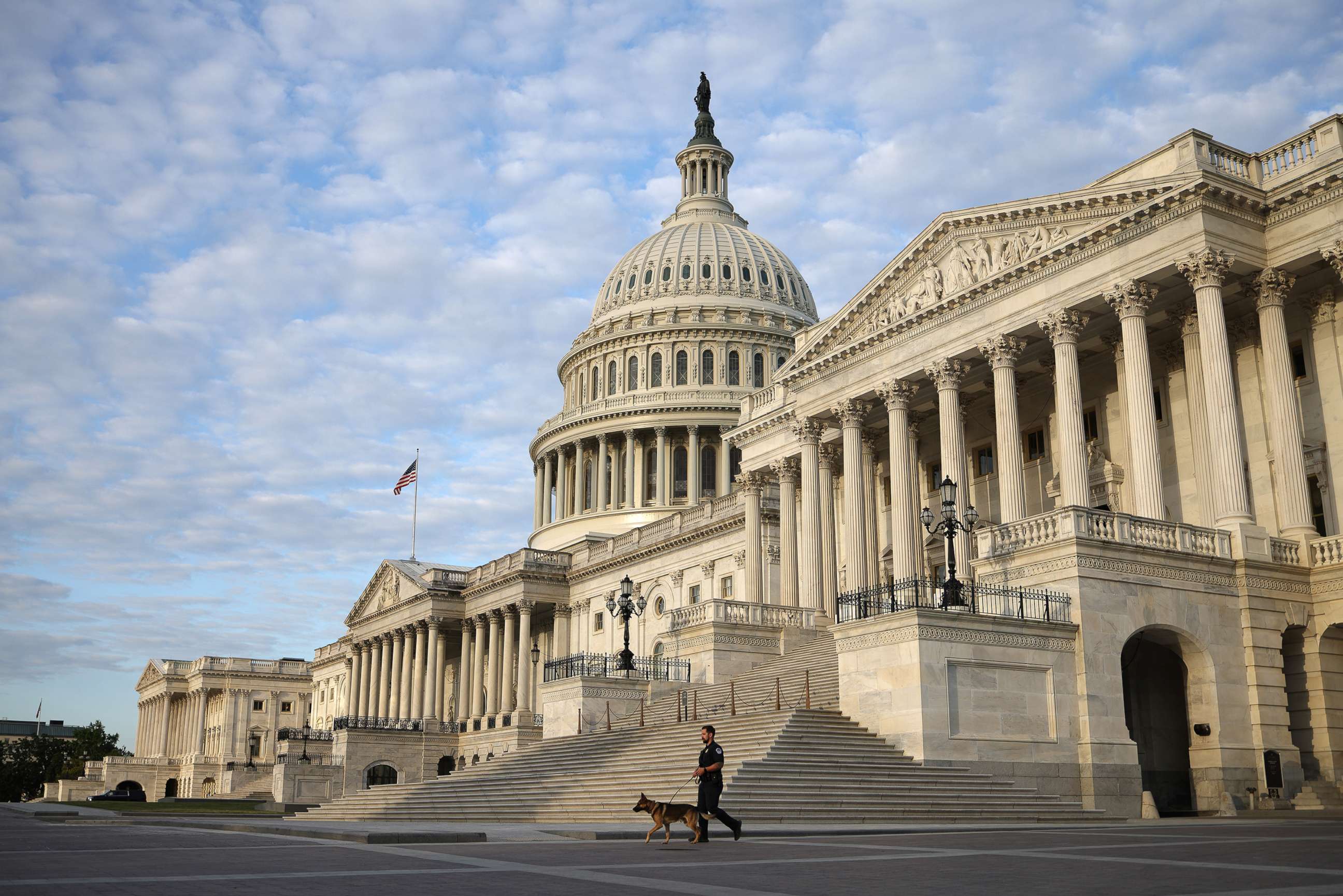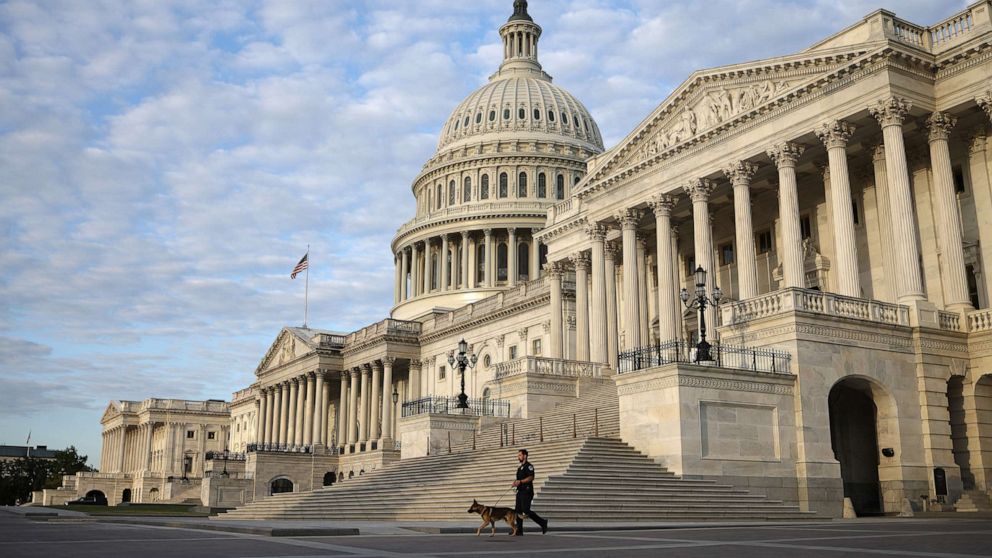Congress passes emergency security funding for Capitol Police, National Guard
The Senate swiftly passed the $2.1B emergency security supplemental bill Thursday with a rare unanimous vote in the Senate and only 11 House members voting against it.
The bill now heads to the president for his signature.

The move staves off critical funding cuts that both the U.S. Capitol Police and National Guard were expected to enact following weeks of congressional inaction. Both forces were crushed by the emergency needs in the wake of the Jan. 6 insurrection, each relying on Congress to reimburse them in the months after the attack.
The bill provides $521 million to reimburse the National Guard for the cost of deployment to Capitol Hill and roughly $70 million to the Capitol Police to cover expenses incurred in response to the attack, according to the bill's summary.
An additional $300 million will be used to bolster safeguards for the Capitol complex, including funds for window and door upgrades and the installation of new security cameras.

But some Republican lawmakers argued that after spending trillions to battle the pandemic, it would be irresponsible to spend billions more without enacting spending cuts to cover the expenses.
The emergency supplemental bill also has $1.125 billion to cover the Afghanistan Special Immigrant Visa program -- a little less than what the White House requested -- to provide asylum to allies there who aided the U.S. mission and now face retribution from a resurgent Taliban.
The bill makes specific changes to the visa program, including increasing the number of authorized visas by 8,000 and lowering an employment eligibility requirement from two years to one.
Sen Mike Braun, R-Ind., said, "We need to protect our National Guard -- and we will. And we need to protect our allies who kept our troops safe, and we will. Emergencies arise and the biggest threat to dealing with them in my opinion is fiscal irresponsibility in D.C. We could have easily paid for the major parts of this legislation with offsets within the DOD."




